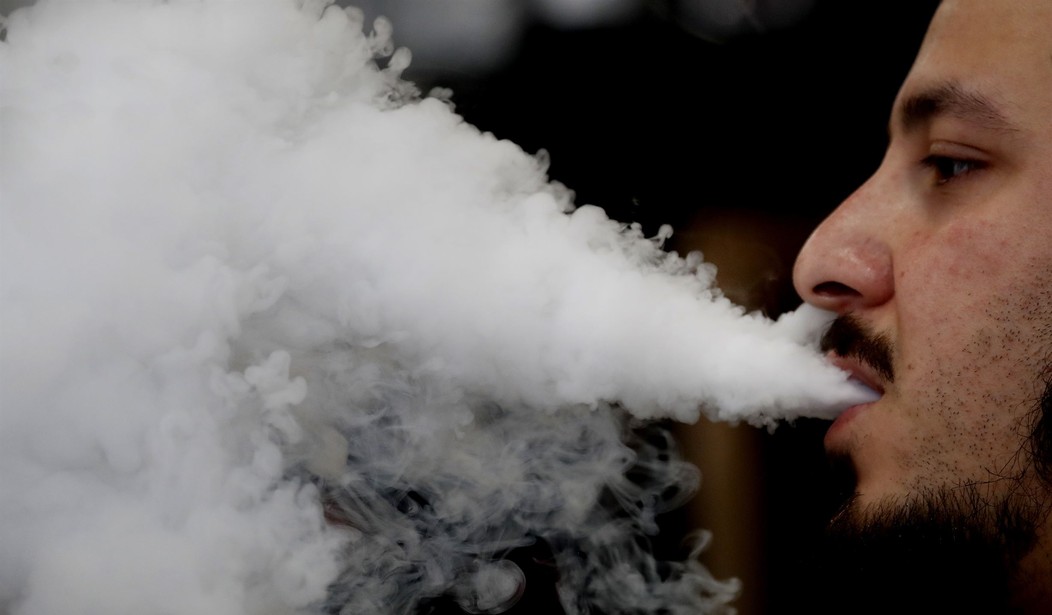Since the onset of the COVID-19 pandemic, many Americans are starting to self-evaluate the nation’s public health agencies, including the Food and Drug Administration (FDA) and the Centers for Disease Control and Prevention (CDC), to determine their role in preventing and suppressing the pandemic. If prying into the FDA and CDC’s previous reactions to other epidemics provides any insight, our national leading health agencies lack transparency, and have in fact harmed the public by their failure to provide truthful evidence.
This cynicism of the science coming out of the FDA and CDC should have started earlier. In the late summer of 2019, a new lung illness associated with vaping began to pop up across the country. Officially called “EVALI” – or e-cigarette and/or vaping associated lung injury – the so-called epidemic evaporated almost as quickly as it began. Not that it didn’t go unnoticed.
Every week, the CDC and state health departments provided updates on EVALI cases and deaths. Some states went out of their way to provide insight into the products patients had used, as well as the substances vaped.
The truth is that e-cigarettes have been available in the United States since 2007, and all legally regulated vapor products were required to register with the FDA and submit ingredient listings in 2017. The outbreak of lung injuries associated with vaping was weird to say the least. And, it was apparent as early as August 2019 that it was not these legal products that were causing EVALI.
The New England Journal of Medicine initially published a report on September 6, 2019, which examined hospitalizations in Illinois and Wisconsin. Of the 53 case patients the authors examined, 84 percent “reported having used [THC] products in e-cigarette devices.” Although patients reported “a wide variety of products and devices,” 21 of the 41 patients interviewed stated using a “THC product … marketed under the ‘Dank Vape’ label.”
Recommended
Dank Vapes is an illicit so-called “name brand” of THC-vaping products. One article called the brand the “biggest conspiracy in pot.” Indeed, in August of 2019, one could purchase empty cartridges and boxes with the Dank Vape label on Amazon and eBay.
Despite state health departments pointing out this particular brand, they were not warning the public about Dank Vapes. In a September 12 update which reported 380 cases and six deaths, CDC noted that most EVALI patients had reported using vapor products containing THC, they did not relay any “name brands” of illicit products. Instead, the officials at the CDC implored the public to “consider refraining from using e-cigarette or vaping products.” A blanket designation that ended up being scientifically irresponsible.
In fact, the nation’s leading public health agency actually waited until December 6 to announce that among EVALI patients, Dank Vapes “was the most commonly reported product brand used by patients nationwide” This fact came when the agency announced 2,291 hospitalizations and 48 deaths.
Undoubtedly, the agency that is supposed to protect the public from harms failed in their due diligence to adequately report the harms of known fake products and could have possibly caused more lives to be lost. A May 2021 study by the CDC on the 2019 EVALI outbreak analyzed “an 18-state web-based panel survey of adult THC- and nicotine-containing” e-cigarette users that was conducted in February 2020. The study found that among THC users, nearly half (47.7 percent) reported using Dank Vapes after the EVALI outbreak, despite this brand being linked to lung injuries.
Moreover, by telling adults to refrain from all vapor products, the CDC has helped to increase combustible cigarette use and misinformation on the reduced harm of e-cigarettes that has spread globally. A June 2020 study examined a survey of adults in England. The researchers found that after the EVALI outbreak, among current smokers, there was a “significant increase in the proportion of individuals who perceived e-cigarettes as equally harmful or more harmful than cigarettes.”
In its mission statement, the CDC claims to work 24 hours a day, seven days a week “to protect America from health, safety and security threats.” The agency asserts that it “saves lives and protects people from health threats.” The CDC’s last EVALI update was published February 28, 2021, and reported 2,807 EVALI cases and 68 deaths.
Between September and December 2019, EVALI cases increased by 502 percent, and deaths increased by 700 percent. After reporting Dank Vapes, between December 2019 and February 2020, EVALI cases increased by only 22.5 percent and deaths by 41.7 percent.
In a world rampant with fake news, the CDC should be better than pundits and deliver the facts. In its failure to report the true cause of vaping-related lung injuries, the agency has balked at its mission statement and rather than saving lives, may very well have caused more deaths among THC vape users.
Lindsey Stroud is Director of Taxpayers Protection Alliance’s Consumer Center.

























Join the conversation as a VIP Member